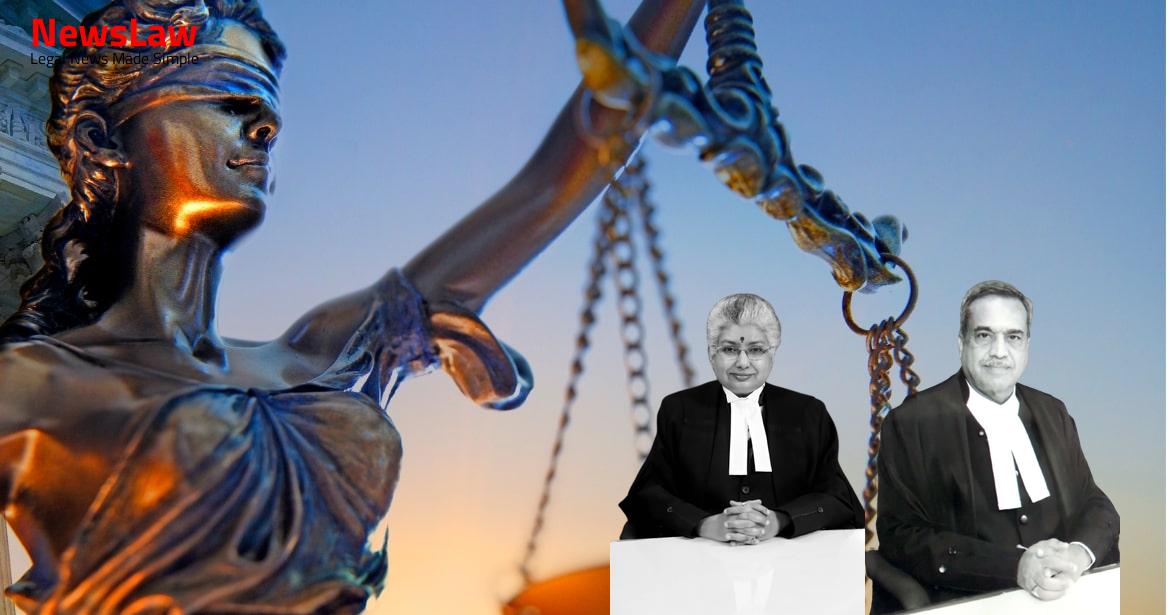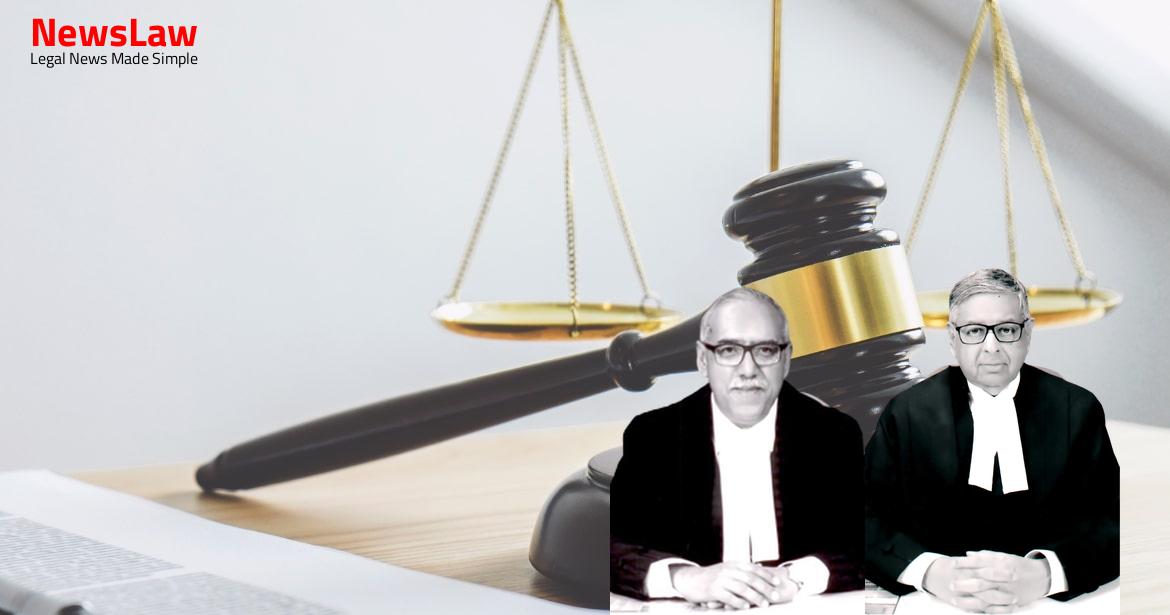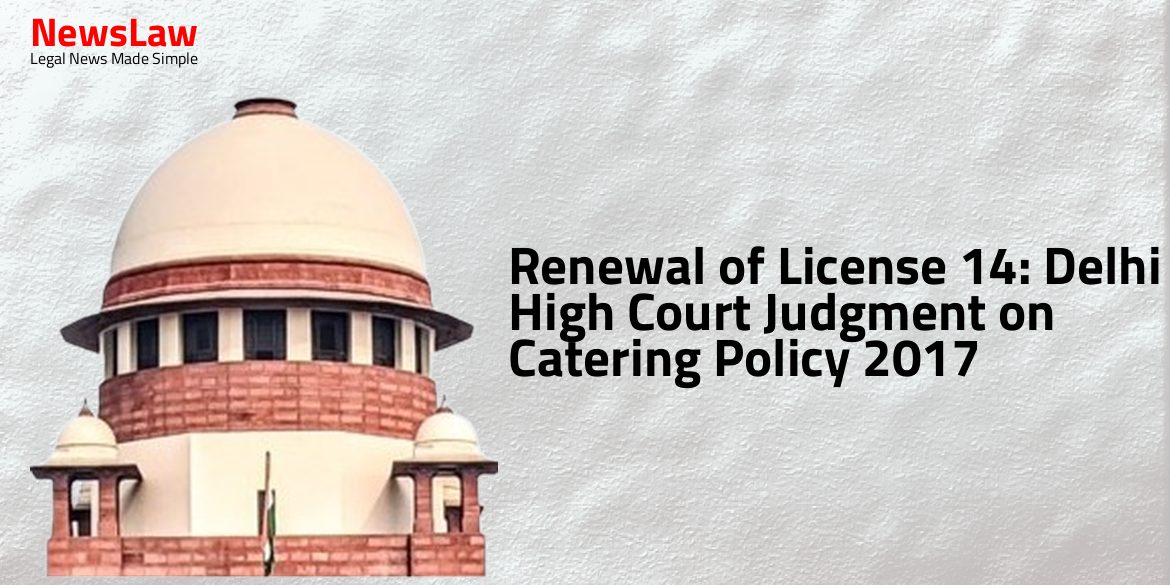The recent legal case involved a deep dive into the court’s analysis of SARFAESI Act proceedings, shedding light on significant legal complexities. The court’s judgment and analysis in the case provide valuable insights into the nuances of the law and its application in such proceedings. Let’s explore the details of this compelling legal analysis.
Facts
- Respondent No. 1 filed a writ petition before the High Court in 2017 seeking various reliefs, including directives to the bank not to proceed under the SARFAESI Act until compliance with a Recovery Officer’s order.
- The High Court rejected the writ petition on 04.02.2017, highlighting the resistance of respondent No. 1 against the recovery proceedings initiated by the bank since 1986.
- Respondent No. 1’s actions were deemed as attempts to delay the recovery of outstanding dues, leading to multiple legal proceedings and objections which were dismissed.
- The DRT’s observations indicated respondent No. 1’s 21-year history of non-payment of dues and the subsequent legal actions undertaken by the bank towards recovery.
- The appellant, through a demand notice under the SARFAESI Act, claimed a significant sum from respondent No. 1, but the actual recovered amount was substantially less.
- Various applications, petitions, and objections were filed by respondent No. 1 challenging the bank’s actions under different Acts, leading to a complex legal battle.
- Respondent Bank permitted to proceed with direct service and further in accordance with law.
- Division Bench of the High Court entertained Letters Patent Appeal and extended ex-parte ad-interim stay.
- High Court reduced the cost imposed by the Single Judge from Rs. 1,00,000/- to Rs. 25,000/-.
- Single Judge’s observations highlighted respondent No. 1’s delay in payment despite a decree from DRT.
- Respondent No. 1 filed Letters Patent Appeal to stall SARFAESI Act proceedings.
- Division Bench directed to decide the LPA and/or interim relief application by 09.03.2022.
- Bank appealed against the ex-parte ad-interim stay granted by the High Court.
- Single Judge dismissed the writ petition with exemplary cost of Rs. 1,00,000/-.
- High Court’s ex-parte ad-interim order granted stay of dispossession and cost payment to respondent No. 1.
- Bank appealed against the ex-parte ad-interim stay granted by the Division Bench.
Also Read: Ruling on Circumstantial Evidence in Murder Case
Arguments
- The Division Bench of the High Court’s ad-interim order has halted the SARFAESI Act proceedings.
- The DRT proceedings have been dismissed due to the order.
- The relief sought in the writ petition overlaps with the interim order from DRT dated 21.01.2017.
- Citing the cases of Authorized Officer, State Bank of Travancore vs. Mathew K.C. and Phoenix ARC Private Limited Vs. Vishwa Bharati Vidya Mandir & Ors., it’s argued that writ petitions against SARFAESI Act proceedings or interim orders are not maintainable.
- One relief sought was to declare the SARFAESI Act proceedings as illegal due to being time-barred.
- The order from the Recovery officer on 15.07.2016, relied upon by the High Court, is under appeal at DRT filed by the Bank.
Also Read: Challenging Legal Presumptions in Negotiable Instrument Cases
Analysis
- The Applicants concealed vital information regarding the death of Smt. Kokilaben N. Trivedi for about 15 years, indicating lack of clean hands.
- The Division Bench allowed the original appellant to withdraw the Letters Patent Appeal, leading to the dismissal of the proceedings before the Court.
- The Division Bench’s decision was criticized for nullifying strong observations made by the learned Single Judge in the writ petition.
- It was observed that the Applicants’ conduct jeopardized fair adjudication of the matter by the Court.
- The bank’s details of securities and recovered amounts, even if some securities were previously sold, did not render the Demand Notice defective.
- The petition was dismissed with a cost of Rs. 1 lakh, considering the findings of the DRT which were not under challenge and had achieved finality.
- Respondent No. 1 withdrew the Letters Patent Appeal to avoid adjudication on the correctness of the impugned order before the Court.
- Reference is made to the judgment in the case of V. Chandrasekaran v. Administrative Officer which is fully applicable to the present case.
- Applicants are liable to pay costs for their conduct.
- Writ petitions under Article 226 against proceedings initiated under the SARFAESI Act or against an interim order are not maintainable as per the decision in Authorized Officer, State Bank of Travancore and Anr. Vs Mathew K.C. and recent decision in Phoenix ARC Private Limited Vs. Vishwa Bharati Vidya Mandir & Ors.
- The ad-interim order of the Division Bench of the High Court has stalled the proceedings under the SARFAESI Act.
- Notice is issued returnable on 15.03.2022 with Dasti permitted.
- The Division Bench is directed to decide and dispose of the LPA and/or the application for interim relief by 09.03.2022.
- Respondent No 1 appeared through his advocate who filed the vakalatnama on 08.02.2022.
- Despite the pendency of the present Civil Appeal, respondent No. 1 withdrew the Letters Patent Appeal before the Division Bench with liberty to file appropriate proceedings before the appropriate forum.
- The ad-interim relief granted by the Division Bench was extended till 14.03.2022 despite the SLP against the ex-parte ad-interim order dated 25.01.2022 being pending before the Court.
- Litigant enjoyed the benefits of litigation for years before realizing the unfavorable outcome.
- Withdrew appeal after obtaining ex-parte relief and realizing it would not be sustained.
- Requested that observations by Single Judge be ignored, which is reprehensible conduct.
- Division Bench did not interfere with Single Judge’s order on merits.
- Division Bench’s order allowing withdrawal of appeal and instructing to ignore certain observations was beyond their jurisdiction.
- Allowing such practices would be speculative and an abuse of the court’s process.
- Impugned order by Division Bench on 04.03.2022 in paragraphs 3(i), 3(ii), 3(iii) and 4 was unsustainable.
Also Read: Legal Analysis Critique in High Court’s Quashing Order
Decision
- The cost imposed by the Single Judge is reduced to Rs.25,000/- and must be paid to respondent No. 1 by RTGS before 11.03.2022.
- The amount of cost should be deposited with the Gujarat State Legal Services Authority within four weeks of receiving this order.
- The order passed by the Division Bench of the High Court of Gujarat at Ahmedabad in the Letters Patent Appeal is quashed and set aside.
- Interim relief, if any, granted till the next date of hearing is extended up to 14.03.2022.
- The forum examining the order passed by the Debt Recovery Tribunal-1 in Case No. S.A. 171 of 2016 should do so independently without being influenced by previous orders.
- The ex-parte interim order granted in the Letters Patent Appeal is vacated.
- The Civil Appeals arising out of SLP (C) No. 2228/2022 and SLP (C) No. 4724/2022 are allowed/disposed with cost of Rs. 1,00,000/- to be deposited by respondent No. 1 with the Gujarat High Court Legal Services Committee within four weeks from the date of the judgment.
- The Civil Appeal arising out of SLP (C) No. 2228/2022 is disposed of as having become infructuous.
- The Securitisation Application is dismissed with a cost of Rs. 25,000/-, and the bank has the right to recover all expenses incurred to defend the litigation filed by the Applicants.
- The cost is to be deposited with the National Defence Fund in the Account No. 11084239799 at the State Bank of India, New Delhi Main Branch (00691).
Case Title: KOTAK MAHINDRA BANK LIMITED Vs. NARENDRA JAYANTILAL TRIVEDI (2022 INSC 572)
Case Number: C.A. No.-004026-004026 / 2022



